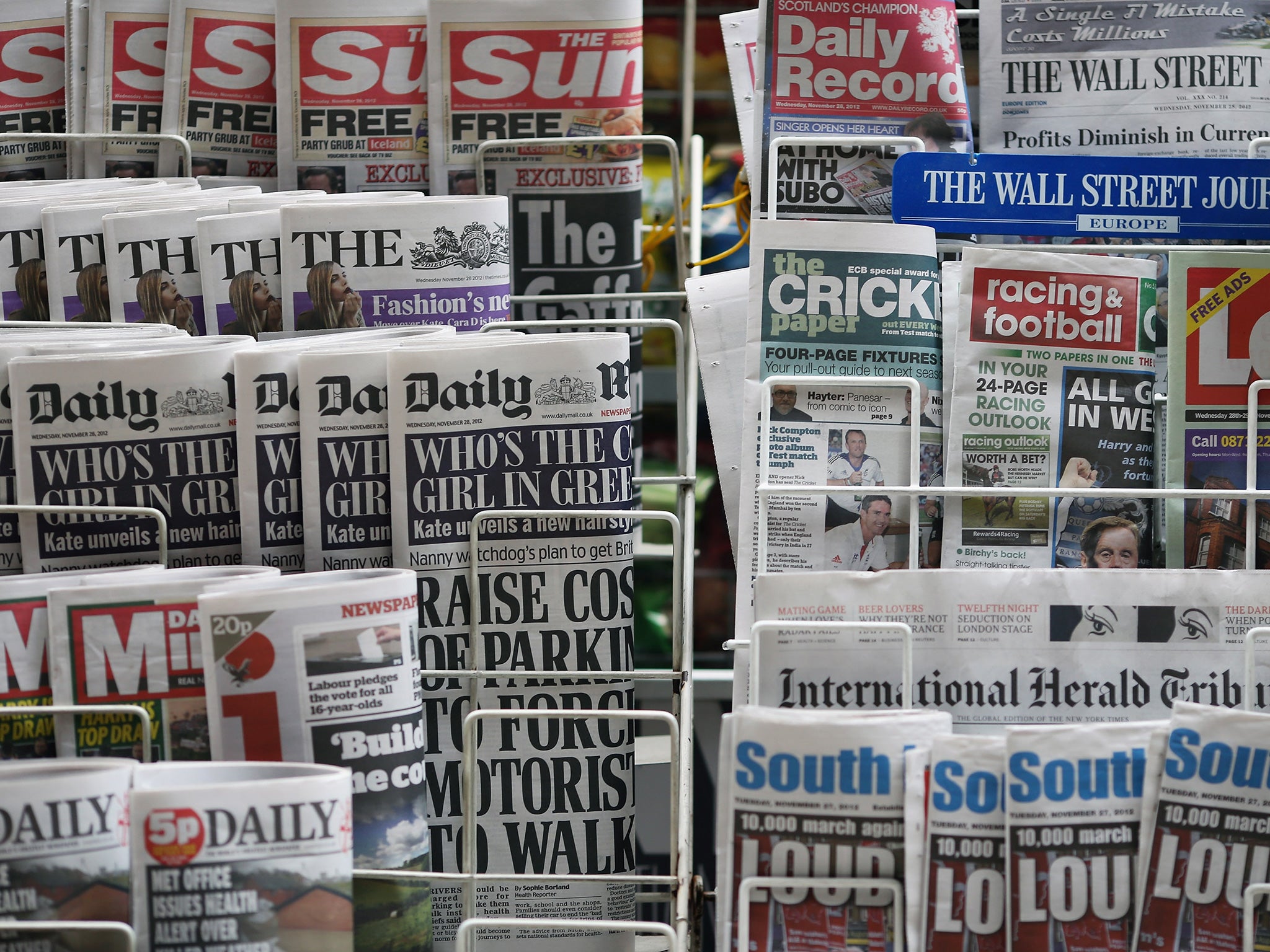The Only Way is Ethics: Journalism has to be accurate but critical opinions must find a place
It should be a key function of newspapers that they let individuals respond to government


Your support helps us to tell the story
From reproductive rights to climate change to Big Tech, The Independent is on the ground when the story is developing. Whether it's investigating the financials of Elon Musk's pro-Trump PAC or producing our latest documentary, 'The A Word', which shines a light on the American women fighting for reproductive rights, we know how important it is to parse out the facts from the messaging.
At such a critical moment in US history, we need reporters on the ground. Your donation allows us to keep sending journalists to speak to both sides of the story.
The Independent is trusted by Americans across the entire political spectrum. And unlike many other quality news outlets, we choose not to lock Americans out of our reporting and analysis with paywalls. We believe quality journalism should be available to everyone, paid for by those who can afford it.
Your support makes all the difference.Accuracy is the most fundamental requirement of good journalism. But since reporting is based on human endeavour, it is impossible to rid journalism entirely of errors. As a consequence, no codes of practice require perfect accuracy per se. Rather, they demand that journalists take due care not to get things wrong. When there is a failure in that regard, a resulting mistake becomes worthy of censure.
The Independent’s Code of Conduct sums up this requirement by noting that our journalists must: “use their best efforts to get all the facts right; do the necessary research; and seek a response from the subject of an article if appropriate (which it usually will be)”. That final point can often be crucial. If allegations have been made about an individual or organisation, natural justice obliges us to give them a chance to either deny the claim or to explain their actions.
As our code continues: “It is good and responsible journalism … that any potentially critical or damaging reference is put to the subject before publication …. The more serious the allegation, the more important it is to provide the subject with a proper opportunity to respond.”
But how far in practice should these requirements extend? Some cases are obvious. As per the wording of our code, if we are reporting a specific, damaging “allegation” about someone, then the subject of the criticism is due a chance to respond. This is the case even if the facts of the matter are not in dispute. The rounder the picture we create, the better served are our readers.
For comment pieces, however, the same need to include all sides of the story does not apply. An opinion should be based on an understanding of the bigger picture but it would plainly be absurd, for example, if a commentator who takes issue with a particular government policy is obliged to include in his or her analysis a ministerial response. That may be what the government of the day would like – but it is not how a free press works.
By the same token, it must surely be permissible for a newspaper to examine a specific element of public policy without being required to include information about every other aspect of the matter at hand.
Perhaps it is coincidence, but the past few weeks have seen several grumbles from government departments that policies have not been “fairly” portrayed – that we have set out concerns about policy announcements without adequately presenting the government position. Yet the complaints are about individual articles and fail to recognise that those “critical” pieces are preceded by coverage of the Government’s explanation of its stance.
Indeed, it should be a key function of newspapers that they give individuals and organisations a voice to respond to government. It can seem rather rich when ministers and their minions then get worked up about being given a right to reply.
Dilemmas that make you stronger
These are tumultuous times for Gawker Media, with senior resignations following internal debates about the degree to which press “freedom” should take precedence over other considerations. Reddit has found itself having similar dilemmas. BuzzFeed, meanwhile, for so long regarded as fun and rather lightweight, is expanding inexorably into serious, investigative journalism.
Growing pains can be hard to overcome. But newer media players, in recognising that there is more to life than lists and an anything-goes attitude to privacy, may emerge the stronger for a bit of maturity (as long as a pinch of mischief remains).
Will Gore is Deputy Managing Editor of The Independent, i, Independent on Sunday and the Evening Standard
Twitter: @willjgore
Join our commenting forum
Join thought-provoking conversations, follow other Independent readers and see their replies
Comments